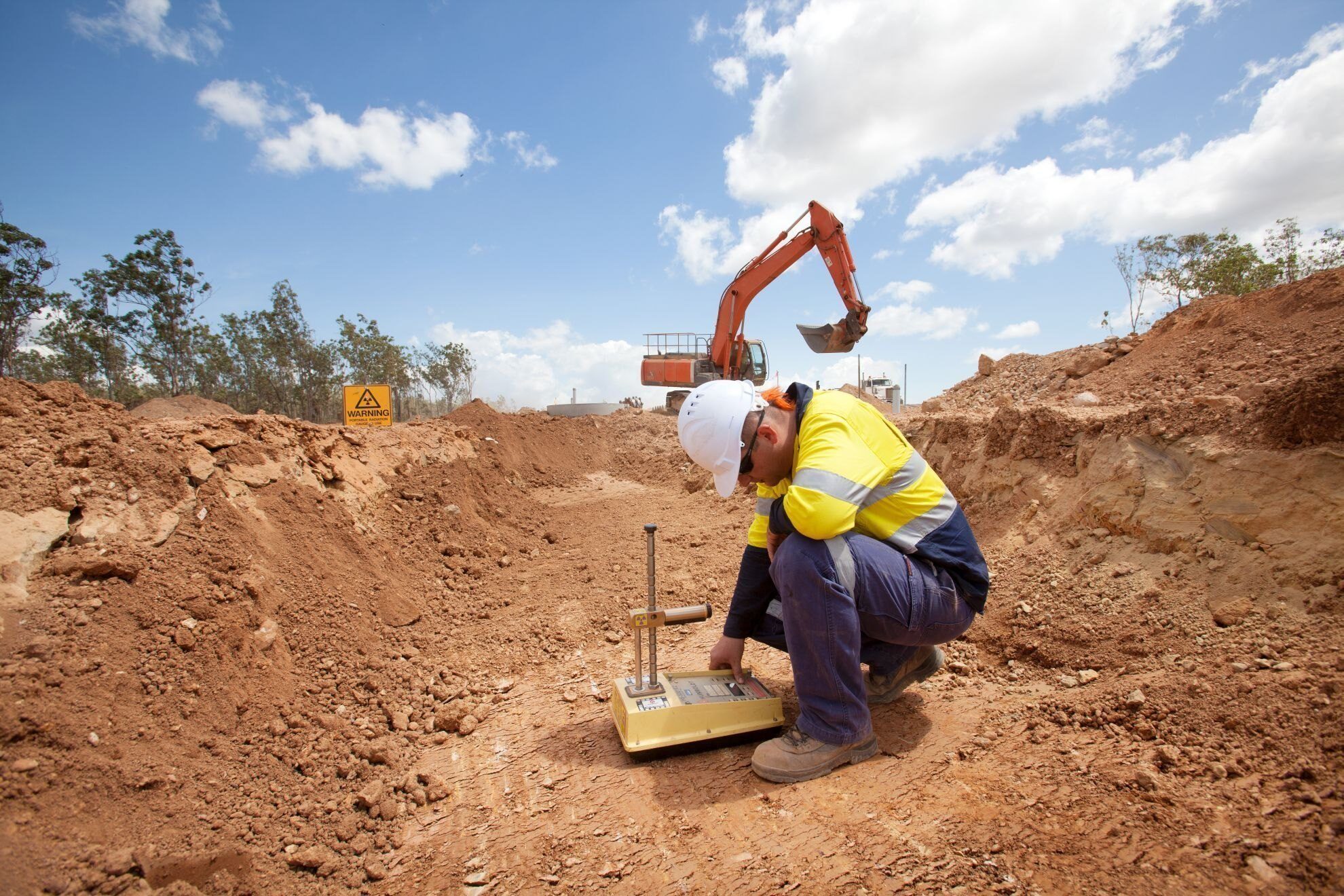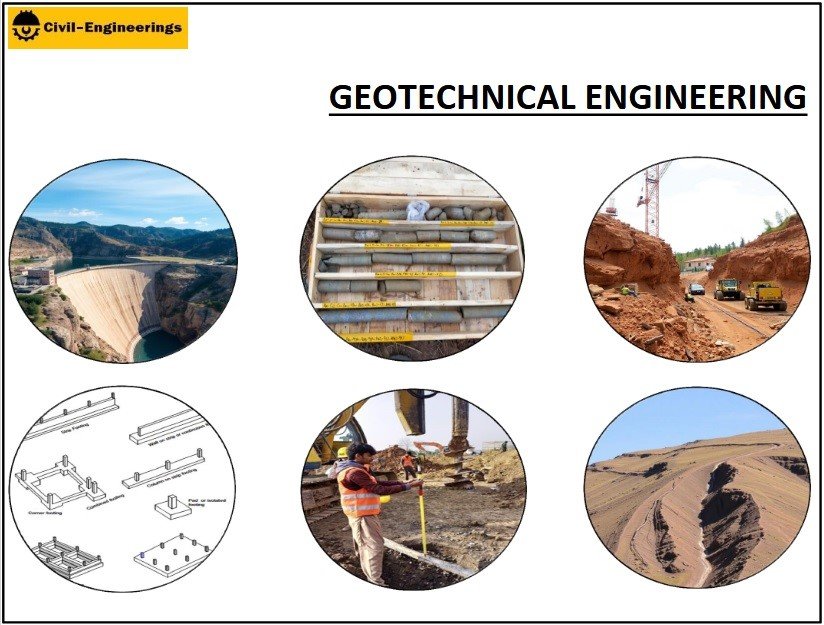Specialized Geotechnical Engineering Solutions Things To Know Before You Get This
Wiki Article
Examine This Report about Specialized Geotechnical Engineering Solutions
Table of ContentsThe Buzz on Specialized Geotechnical Engineering SolutionsThe Definitive Guide to Specialized Geotechnical Engineering SolutionsThe Definitive Guide for Specialized Geotechnical Engineering SolutionsThe Basic Principles Of Specialized Geotechnical Engineering Solutions
They perform site examinations, accumulate samples, carry out lab examinations, and examine information to examine the viability of the ground for building and construction tasks. Based upon their findings, geotechnical engineers offer referrals for structure style, slope stability, keeping structures, and mitigation of geotechnical threats. They team up with various other experts, such as designers, structural designers, and building and construction teams, to make sure that geotechnical factors to consider are integrated into the total task style and application.
Foundation Style: Geotechnical engineers play a crucial function in making foundations that can safely sustain the desired structure. They evaluate the soil problems and load requirements to establish the ideal structure kind, such as shallow foundations (e.g., footings), deep foundations (e.g., piles), or specialized methods like dirt improvement. They take into consideration variables such as negotiation restrictions, birthing capability, and soil-structure interaction to create optimal foundation layouts.
The Main Principles Of Specialized Geotechnical Engineering Solutions
Below are some types of geotechnical engineers: Foundation Engineer: Structure engineers concentrate on making and evaluating foundations for structures - Specialized Geotechnical Engineering Solutions. They assess the soil problems, lots demands, and website qualities to identify one of the most ideal foundation kind and design, such as superficial foundations, deep foundations, or specialized methods like pile foundationsThey perform area screening, accumulate examples, and evaluate the accumulated information to characterize the soil properties, geologic formations, and groundwater problems at a website. Geotechnical Instrumentation Designer: Geotechnical instrumentation engineers concentrate on monitoring and gauging the behavior of dirt, rock, and frameworks. They set up and maintain instrumentation systems that check elements such as soil settlement, groundwater degrees, incline movements, and structural variations to examine efficiency and offer early warnings of possible issues.
In the workplace setting, geotechnical engineers use specialized software application devices to execute estimations, produce styles, and examine information. Specialized Geotechnical Engineering Solutions. They prepare reports, evaluation task specs, connect with customers and staff member, and coordinate task tasks. The office setting offers a conducive setting for research, analysis, and collaboration with various other experts associated with the project
They often visit project websites to carry out site investigations, examine geotechnical conditions, and gather information for evaluation. These sees include traveling to various areas, often in remote or challenging surfaces. Geotechnical designers may perform dirt sampling, conduct tests, and display building activities to ensure that the geotechnical facets of the job are being implemented appropriately.
The Single Strategy To Use For Specialized Geotechnical Engineering Solutions
Geotechnical engineers likewise operate in specialized geotechnical labs. In these centers, they conduct experiments, do examinations on soil and rock samples, and assess the engineering residential or commercial properties of the products. Geotechnical laboratory engineers function thoroughly in these environments, managing screening tools, running instruments, and taping information. They collaborate with other lab team to ensure accurate and trustworthy screening results.Preserving Wall surfaces: Creating walls that hold back soil to stop landslides and offer stability on sloped surfaces. Embankments and Earthworks: Creating embankments for roadways, trains, and dams to guarantee they stay stable under tension. The mining sector depends greatly on geotechnical design to guarantee the security and long life of its procedures.
With this in mind, we have actually designed our program to prepare students for success. The Geotechnical Design program at the University of Delaware provides chances for sophisticated research study and research in: Soil and rock mechanics Soil-structure communication Integral modeling Computational geomechanics Structure and earth structures design Ground renovation Incline stability and landslide stabilization Liquefaction of dirts and quake engineering Lab characterization of geomaterials and soil support Ecological geotechnics Provided the strong need for improvement to our country's infrastructurethe American Culture of Civil Engineers offered the united state
Geotechnical engineering is a branch of civil engineering; nonetheless, it entails utilizing scientific approaches and principles to collect and analyze the physical residential or commercial properties of the ground. Geotechnical engineers are associated with all stages of the layout of structures, from principle to building. Their work is essential in the layout and planning procedure as they examine the integrity of dirt, clay, silt, sand, Click This Link and rock, prior to building and construction beginning.
Some Ideas on Specialized Geotechnical Engineering Solutions You Should Know
This is followed by a ground investigation based on the findings of the desk study his comment is here and involves trial pitting and sampling to uncover any potential issues. Geotechnical engineers work within multidisciplinary groups, sustained by intermediate and jr designers along with by CAD technicians. As a senior geotechnical designer on a hydro plant task, jobs might include taking part in technical reviews (e.g., peer reviews), tailings clog inspections, dam safety and security testimonials, and various other studies connected to the layout and building and construction of mine waste centers.
While some experts specialise exclusively in geotechnics, others may work under titles like design rock hound or ground engineer within comparable abilities. As a geotechnical engineer, you'll need to: construct and preserve connections with clients and various other experts involved in the website, throughout each projectmaintain safety and security requirements on site be conscious of expense implications when you make recommendationsstudy geological maps and airborne photos from a variety of sources and from various time periodsexamine building plans to see just how possible they are based upon your understanding of the siteinvestigate dangers or geological hazards for the sitesearch for eco sensitive features, such as garbage dump start to develop valid and interpretive ground modelsplan field investigationsdrill and evaluate examples of bedrock, soil, groundwater and extra materials oversee other professionals on sitesolve technological issues as they develop, such as unexpected frameworks at drill sitesmonitor problems throughout and after construction to ensure structures are steady in the brief and long termadd information collected on website to your initial researchcreate geotechnical computations, illustrations, and two or three-dimensional computer system models translating the datamake referrals about the recommended use of the site.
There are whole lots of chances to meet new individuals, as you'll function with a series of experts at every website. The work can be difficult as you may be in charge of the safety of others while on site. There is likewise a high degree of economic responsibility, as the suggestions you make can have severe check my source price implications.

Report this wiki page